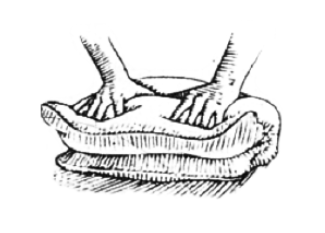When is it time to replace your pillow?
An uncomfortable night's sleep is bad for your health. Like your mattress, pillows should be rotated throughout the year and replaced as necessary. Replacing your pillows regularly not only prevents allergen build-up, but also enhances comfort and quality throughout each night's sleep. To support your head and neck properly and maintain good sleep hygiene, doctors and sleep experts suggest replacing your pillow every one to three years.
Pillow doesn’t last forever. With time, even the best pillows wear out and become a breeding ground for allergens. Perhaps it’s time to do some simple tests to help you know when it’s time to change your pillow!
Sight & Smell Test
A good rule of thumb is that if your pillow has a strong odour and/or visible stains, you should replace it. If you see dust or mould on your pillow, it's time to get rid of it.
First, take off the pillowcase and examine your pillow.
Does it have stains from sweat?
Is it torn?
Does it smell?
Has it lost its shape?
These are all signs of a pillow that needs replacing.
Your sweat, hair, saliva, body oil, and dead skin cells are all absorbed by your pillows. These fluids and flakes may cause mould, mildew, and other allergens to accumulate and cause a foul odour that makes it harder to sleep well. To get the most life out of your pillows, you can use our MAKKO bamboo fibre waterproof pillow protectors made of waterproofing fabric for extra protection.
Fold test
Your pillow is a key part of your sleep routine. It supports the head and neck, aligns the spine, and prevents the body from becoming stiff. All of these factors contribute to a good night's sleep.
There are several signs that indicate it's time to replace your pillow:
The pillow has lost its shape or firmness
Excessive wear in the middle of the pillow where your face rests
You wake up with neck pain or stiffness
If you've been using your pillow for more than two years, it could be time to say goodbye. While some people prefer to get new pillows every year, others prefer replacing them every two years. The choice is yours!
To find out how worn out your pillow is, try this simple test:
Lay your fluffed pillow on a hard surface. Fold the pillow in half and squeeze out all the air.
Release the pillow and see if it unfolds and returns to its original shape.
A worn-out pillow will remain folded.
If your pillow doesn’t spring back to its original shape, it’s time for a replacement.
Comfort test
An uncomfortable pillow means an uncomfortable night of rest. Is your pillow firm or soft? Does it feel lumpy or flat? If you wake up with a stiff neck or a sore back, a new pillow may be your solution. A regularly-replaced pillow will give your body the quality of sleep it needs and allow you to wake up feeling fresh.
If you have been using your pillow for several years, there is a good chance that it has become flat or lumpy. This happens when there is excessive wear and tear on the fabric due to regular use, washing or even stains from spills or bodily fluids like sweat or saliva (gross!). Providing adequate support for your head and neck while sleeping becomes impossible because there are no longer any soft spots into which they can sink with ease.
To ensure that your pillow is providing sufficient support, try the comfort test:
Lie down on your side with your head resting on your hand while reading.
If you feel severe discomfort in your neck or back after five minutes, you may need a new pillow.
If you can read without discomfort for more than five minutes before moving or adjusting, you should be good for another few months!
More support means fewer aches and pains in the morning, and a pillow provides the most support when it is new.
Our sleep matters; so should our investment in pillows.
The best way to determine whether your pillow needs replacing is to rely on your senses and body as indicators. Regularly examine your pillows for odour, stains, and general wear and tear. If it looks like they're doing their job properly, they probably are. But if they don't look or smell fresh, it's time to replace them immediately. If you have allergies, asthma, or another respiratory condition, you may need to replace your pillows more often than others.
Reference site:



Comments